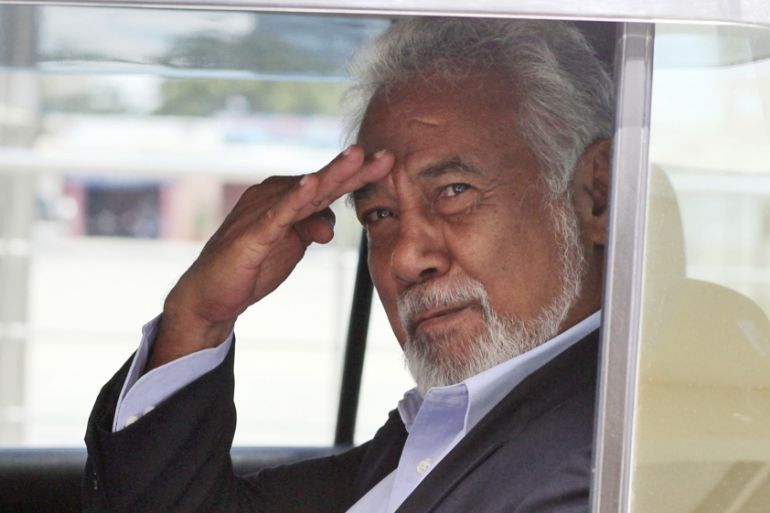Xanana Gusmao returns as East Timor PM in coalition government
Country’s first president and former prime minister says his coalition controls 34 of parliament’s 65 seats.

A six-party coalition in East Timor is ready to form a government led by independence hero Xanana Gusmao, it has told President Francisco Guterres in a letter, the coalition’s spokesman said on Tuesday.
Gusmao, the country’s first president and a former prime minister, announced last month that he had formed a new coalition controlling 34 of parliament’s 65 seats, saying he would prepare to form a new government.
Keep reading
list of 3 itemsEast Timor: Between hope and unease 20 years after referendum
Toxic cost of rubbish scavenging in East Timor
The tiny Southeast Asian nation faced political instability since the collapse of a coalition supporting Prime Minister Taur Matan Ruak.
Gusmao, 73, led the military wing of the Revolutionary Front for an Independent East Timor that fought Indonesia, which took control of the country in 1975 after centuries of Portuguese rule.
He was jailed in Jakarta towards the end of Indonesian occupation but continued to lead the struggle for independence from behind bars.
After the Timorese voted overwhelmingly for independence in a United Nations-backed referendum in 1999, Gusmao returned to his homeland a hero and was elected the country’s first president in 2002. He then served as prime minister from 2007 until his resignation in February 2015.
|
|
East Timor, one of the world’s poorest countries, was occupied by Indonesia for 24 years, during which an estimated 100,000 East Timorese were killed.
When Indonesia left in 1999, more than 80 percent of the country’s infrastructure had been destroyed.
The country became fully independent in 2002 after three years of UN administration. It remains heavily reliant on oil and gas, which accounted for 78 percent of its 2017 state budget.
Tensions have simmered in the nascent democracy over income inequality and high unemployment.
Aside from oil, agriculture and coffee cultivation are key sectors of the economy.